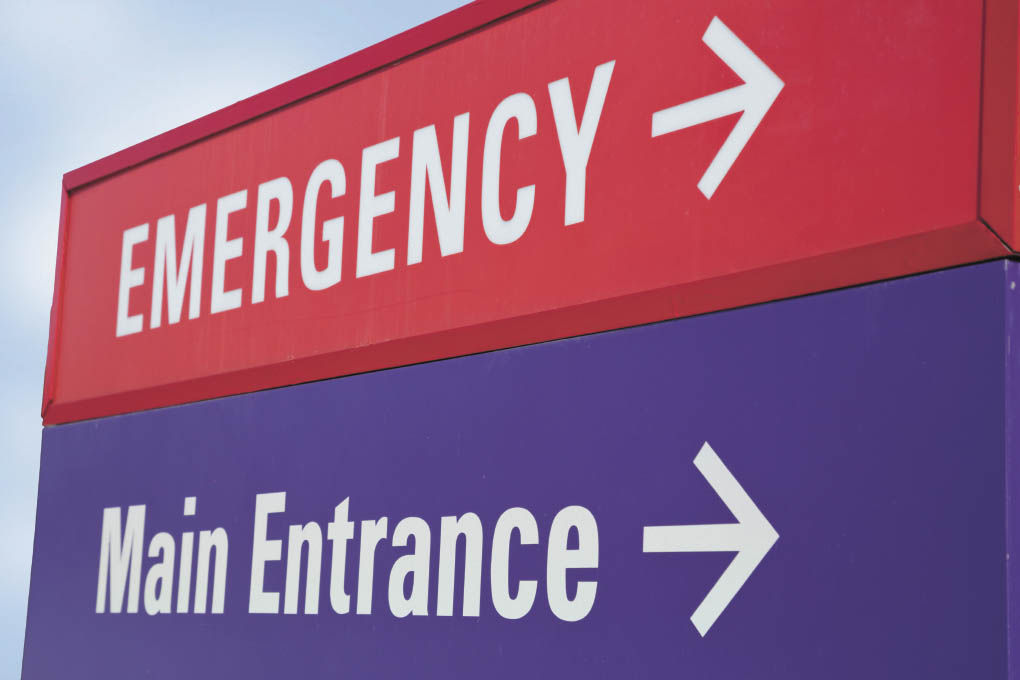Georgia’s rural hospitals teeter as solutions are debated
Published 3:45 pm Sunday, October 19, 2014

- Eight rural hospitals in Georgia have closed or downsized and another 15 are teetering on the brink of closure and could be gone in the next year or two, according to a group representing rural hospitals.
Eight rural hospitals in Georgia have closed or downsized and another 15 are teetering on the brink of closure and could be gone in the next year or two, according to a group representing rural hospitals.
While some say expanding Medicaid could help, Georgia Gov. Nathan Deal said he is against expanding “entitlements” and would rather see more poor people get subsidies to buy private insurance under the Affordable Care Act.
Rural hospitals have taken hits from every direction, from higher unemployment rates in their counties, to physician shortages, to Medicaid cuts that mean payment covers about 85 percent of costs, said Jimmy Lewis, the CEO of HomeTown Health LLC, which represents 70 rural hospitals in Georgia, Florida and South Carolina.
Compared with other states, Georgia is “at the bottom of the bucket,” he said.
Georgia has the third-highest uninsured rate and the sixth-highest poverty rate, said Timothy Sweeney, the director of health policy for the Georgia Budget & Policy Institute. Georgia probably crept ahead of New York recently for the fourth-most in terms of the actual number of uninsured, he said.
Even though the state chose not to expand Medicaid, the process of people trying to enroll through the Health Insurance Marketplaces determined a large number of children and adults were eligible. The estimate ranges from 75,000 to 100,000.
County governments are in just as bad a shape as the hospitals and many times in no position to help, Lewis said.
Rural county governments “are having to make a decision whether they want to pick up the garbage or whether they want to have a hospital,” he said.
In Elberton, Elbert Memorial Hospital is “one of those hospitals” that could close at any point, CEO Jim Yarborough said.
“We’re likely surviving day to day and week to week,” he said. “We’re very much a poster child for those hospitals that are in critical condition.”
Expanding Medicaid eligibility in Georgia likely would bring in about 500,000 people who are uninsured and are below 138 percent of the federal poverty level, and who currently don’t qualify for subsidies because of a quirk in the federal health care law that doesn’t allow subsidies for those who should qualify for Medicaid, Sweeney said.
An economic analysis of Medicaid expansion by Georgia State University found that from increased revenue, the federal government would have covered 100 percent of the expansion for the first three years beginning this year then 95 to 93 percent of the cost up to 2020. It estimated it would result in 70,343 jobs and increased state and local tax revenue. It would return about 30 to 1 for state expenditures, which is “a fantastic bargain,” Sweeney said.
Deal said he opposes Medicaid expansion because that would be “expanding an entitlement program. Entitlements are what have gotten our country in very bad shape. If we continue to grow entitlements, we will never be able to get our federal budget under control.”
Besides, he said, Medicaid doesn’t even cover the cost of providing the care. If anything, Deal said, the federal government should block-grant the funding for Medicaid to Georgia “to allow us to design a Medicaid delivery program as best we see fit.”
In the alternative, he said the federal government should drop its prohibition on subsidies to buy private health insurance in the Marketplaces for those who are eligible for Medicaid.
“What they have now is they do subsidize private insurance purchases at a certain level,” Deal said. “They do not drop it down to pick up where a state’s Medicaid eligibility leaves off. It would seem to me that would be a more appropriate way to deal with it. It doesn’t make any sense if you are going to give subsidies to people further up the economic scale but not give it to people who are further down the economic scale.”
But there are a couple of problems with that idea, Sweeney said. One, Medicaid is designed for poor people and to limit the costs of their care. A policy with significant co-pays and a $4,000 deductible “would be totally unaffordable and it would make the coverage useless,” he said, for someone making $10,000 a year. “That’s like not having insurance.”
And having the federal government add significantly to the subsidies it provides to cover premiums would be much more expensive, Sweeney said.
“Many people objecting to the Medicaid expansion have done so on the grounds that the federal government doesn’t have the money to do it,” he said. “It is a bad idea from a federal spending standpoint. This alternative would result in more federal spending.”
People in rural areas are already twice as likely to be dependent on Medicaid and while the payments are low “that Medicaid reimbursement is so much better than zero,” Sweeney said.
Medicaid expansion would help, Lewis said.
But “we have so may things going on in Georgia, this would not be the silver bullet,” he said.


